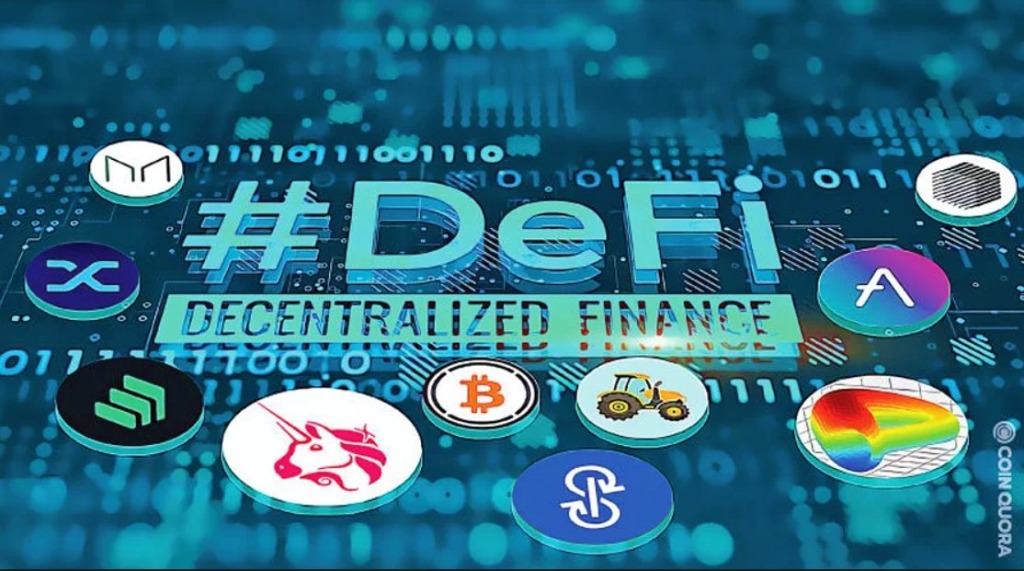
DeFi protocols have revolutionized the financial industry ever since their introduction. But while the crypto space is evolving, it also has its downsides like frauds or hacks. We will discuss both sides of the coin through the examples of CAKE and RING Financial.
Revolutionizing Finance: The Role of Tokens Like CAKE in the Crypto Takeover
DeFi protocols have helped to revolutionize the world of crypto by providing individuals with greater control over their money and assets, says the OECD. By using DeFi protocols, users can manage their own funds without relying on a third-party entity or risking the chances of a scam. These protocols provide individuals with the ability to safely store and exchange crypto assets, as well as earn interest on their token holdings. Additionally, DeFi protocols can help users to access decentralized financial services and provide liquidity to the markets.
CAKE and RING Financial are crypto tokens that have played a major role in the finance revolution. As cryptocurrencies, CAKE and RING Financial can be used to facilitate transactions on decentralized networks and applications. This means that RING Financial and CAKE can be used to transfer value between users without relying on traditional financial institutions or services. This opens up a world of possibilities when it comes to managing finances securely, quickly, and at a fraction of the cost. By providing a secure platform to trade and manage crypto assets, DeFi protocols are helping to promote financial inclusion for individuals around the world. As the popularity of crypto grows, so too will the number of individuals who are interested in tokens like CAKE or RING Financial Token. With their support, the crypto industry is sure to make great strides in promoting economic freedom, says IndiaTimes, and financial stability for all. However, the crypto market has its own risks in the form of potential fraud.
Scams and Hacks in the Crypto Space: The RING Financial Token Debacle
Unfortunately, fraud-related activities and hacks are also a part of the crypto space. The crypto space is vulnerable to these types of attacks due to its decentralized nature and lack of regulation in certain areas. It is important for users to be aware of these potential risks so they can protect themselves from fraudulent activities. There are various types of scams that can occur in the crypto space, ranging from phishing attacks to Ponzi schemes. One of the most common scams is a phishing attack, where malicious actors try to gain access to your account and steal your funds. To protect yourself from these types of scams, it is important to never share your private key or sensitive information with anyone, even if they claim to be a legitimate representative of the project. Hacks are also a real threat in the crypto space, as malicious actors can exploit vulnerabilities in software and protocols to gain access to user funds.
The RING Financial Token is a good example of the latter. RING Financial fell victim to a hack, though it has also been accused of being a scam. The RING Financial Token was initially designed as a DeFi protocol with the intent of aggregating top protocols. This would eventually increase accessibility and reach for all users. Having been built on the Binance Smart Chain, the RING Financial Token aimed to financially empower individuals using the token. The innovative approach implemented would have simplified the transaction process, making RING Financial Token an accessible choice for all individuals. All these factors were cause for optimism for the RING Financial team and the protocol initially seemed to be promising. However, soon after its launch, RING Financial was hacked and accusations of being a scam (more details) were leveled against the project. In 2021, the RING Financial Token was hacked which resulted in major losses for the token holders. How was RING Financial hacked? The RING Financial Token had a vulnerability in its coding that opened it up to attack. The token was developed using Solidity. The RING Financial coding team, having little experience with this language, made a mistake in the coding stage. They assumed that a feature that is common in most other coding languages is also present in Solidity but it was not the case.
The situation has been hotly debated since the project’s downfall, with some critics believing that RING Financial was a scam. The main criticism is that the mistake was left intentionally as a loophole, in order to defraud users later. However, with some digging, we discovered what the actual flaw of the development was and it wasn’t scam-related activity. In most languages, all codes inherit a function assigned to their parents. RING Financial coders assumed that Solidity also operates this way, which would have been a reasonable assumption as the overwhelming majority of coding languages do. It’s especially easy to make this mistake if a coder has no extensive history with this language. And this mistake cost them the loss of public trust and financial assets. However, this does go to show the lack of intent to defraud their users.
Avoid Fraud and Other Crypto Risks
Considering the losses of the project, we do believe that the RING Financial case was a genuine mistake and not an attempted scam. This was not a case of creators trying to scam their token holders and yet the token holders still ended up losing their assets. This goes to show you that not every well-intentioned project is going to succeed. And just because the creators are not attempting to defraud you, you will gain from it. The DeFi space is filled with many opportunities to empower yourself, it also has the risks like scams. It is important for users to stay up-to-date on any security updates and patch their systems regularly to mitigate these types of attacks.
Last Updated: October 10, 2023




















